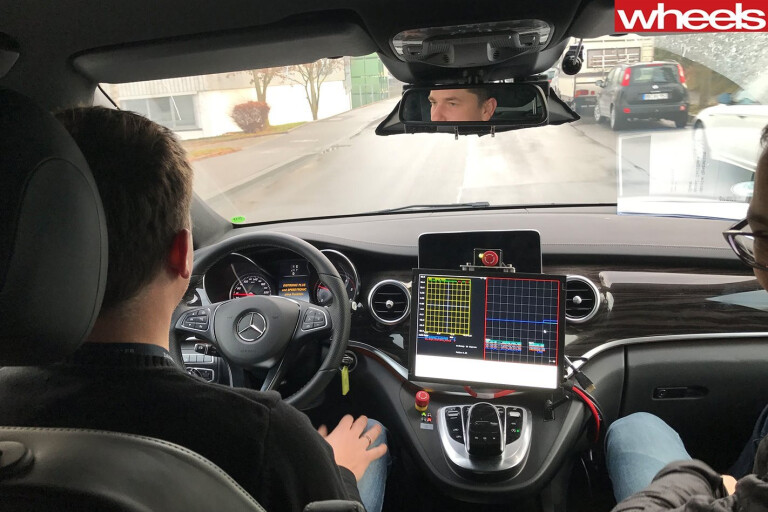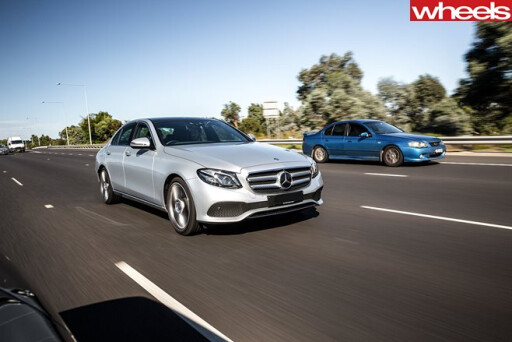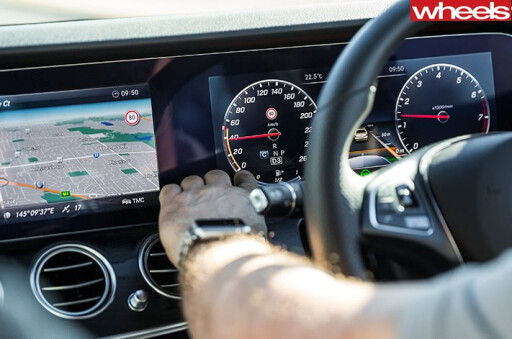
MERCEDES-BENZ Australia has put its hand up to be a part of a widespread global autonomous driving development program dubbed the Intelligent World Drive, that will bring a specially equipped S-Class to local roads in November this year.
While some brands have chosen to take a back seat with Australian autonomous vehicle research, opting instead to let global counterparts lead the way, the local branch of the three-pointed star is taking an active role in bringing self-driving technology to our roads sooner. It already has a Level 3-capable E-Class sedan that will help the Victorian Government and toll road operator Transurban test how well the fledgling technology interacts with Australian conditions.
Speaking at the 2017 Frankfurt Motor Show, Mercedes-Benz Australia Pacific chief executive and managing director Horst von Sanden told Wheels that Stuttgart’s engineers had flagged Australian roads as particularly useful in the development of autonomous technology.
“When we had the E-Class launch our engineers did a test drive along the Great Ocean Road and thought this is kind of different to what they normally drive in other countries, so I think it is important to map and experience all the different things to really then build them into future systems,” he said.

“The strategy is to further improve the whole quality of the infrastructure. Obviously the road conditions are completely different, the road signs are different, and the quality of roads are different.
“We will have one vehicle there for testing in November.”
The modified large luxury sedan will not be prepared with any extra driver assistance or self-driving features beyond those fitted as standard to the new S-Class, but will be kitted out with more sensors and data storage hardware.
Information drawn from the Australian environment, along with the data from other global regions, will then be used to refine Mercedes-Benz's autonomous technology and will result in Mercedes vehicles that are more at home in a broader range of countries, including Australia.
While preliminary trials are being staged on local roads by a handful of brands including Volvo, Australia is not leading the world in preparing the ground for driverless cars and the legislation to allow them, but von Sanden said Australia would get up to speed as soon as a tipping point could be reached.

“It’s obviously a long way and Australia is not at the forefront of building infrastructure at this stage but I’ve been in Australia for a while and what I’ve experienced is that even though Australia is running behind a little bit, once the interest grows, Australia is very innovative and catches up quickly.
“I’m very confident we won’t stay behind and we will certainly jump on board. It just needs this little ignition to get the right people excited and the politicians on board and this has already started.”
With real-world Australian data being fed into the larger worldwide acquisition, vehicles equipped with the latest systems will work better and appeal to a larger audience both locally and elsewhere in the world, claimed von Sanden.
“The point when you start to believe in something is when you make it tangible. As long as it is on strategy papers, that’s nice but it’s not everyone’s kettle of fish, but as soon as someone sits in the car and experiences it and realises how far the technology has come I think that’s when it starts”.



COMMENTS